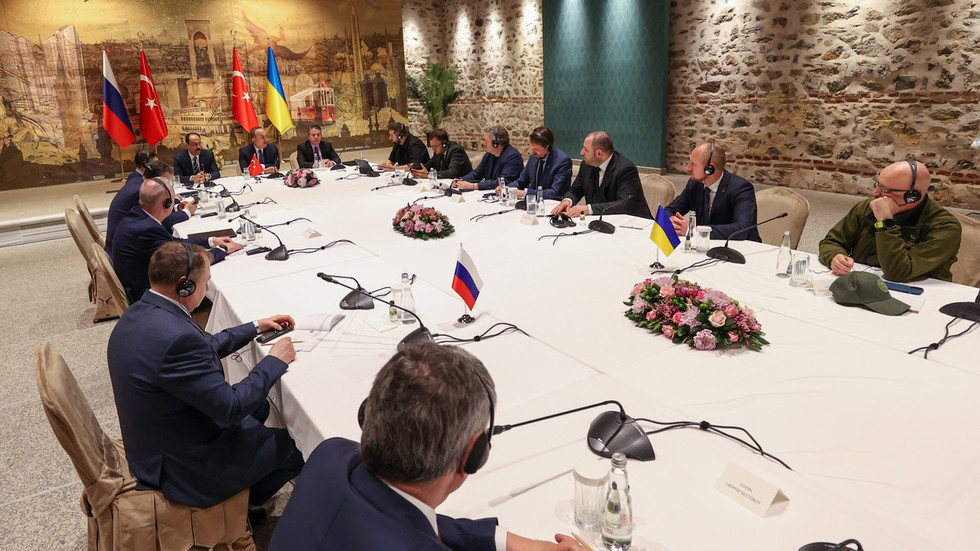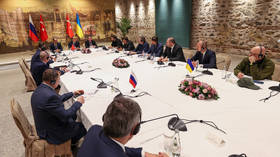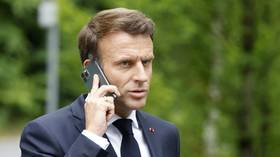
Both Moscow and Kiev appeared to have been ready for a ceasefire, Naftali Bennett says

FILE PHOTO: Turkish Foreign Minister Mevlut Cavusoglu (C) gives a thank you speech during the peace talks between delegations from Russia and Ukraine at Dolmabahce Presidential Office in Istanbul, Turkiye on March 29, 2022. © Cem Ozdel / Anadolu Agency via Getty Images
Peace might’ve been agreed between Russia and Ukraine shortly after the start of the conflict, but Kiev’s Western backers blocked the negotiations between the two neighbors, former Israeli Prime Minister Naftali Bennett, who mediated those contacts, has said.
Bennet, who gave an almost five-hour-long video interview to Israel’s Channel 12 on Saturday, claimed that his efforts as a middleman came close to succeeding as both Moscow and Kiev appeared to be ready to make concessions and agree to a truce.
It didn’t happen because “I think there was a legitimate decision by the West to keep striking [Russian President Vladimir] Putin… I mean the more aggressive approach,” he said.
When asked by the host if the US and its allies “blocked” the peace process between Moscow and Kiev, the former PM replied: “Basically, yes. They blocked it.”
“I claim there was a good chance of reaching a ceasefire. But I’m not claiming it was the right thing,” he clarified.
Russia’s Foreign Ministry spokeswoman Maria Zakharova reacted to the revelations by the Israeli politician on Telegram, saying that they were “yet another confession” that the West wasn’t interested in peace in Ukraine.
According to Bennett, his mediation “was coordinated down to the last detail with the US, France and Germany.” After the conflict broke out last February, there was no unified approach on how to deal with it among Western leaders as “[British PM] Boris Johnson adopted the aggressive line; [German Chancellor Olaf] Scholz and [French President Emmanuel] Macron were more pragmatic, and [US President Joe] Biden was both,” he said.

Some 17 or 18 drafts of the peace deal between Moscow and Kiev had been prepared with his involvement, the former PM said. Bennet claimed that, among other things, he managed to secure a pledge from Putin that he was “not going to kill [Ukrainian President Vladimir] Zelensky,” who feared for his life. The Russian leader was also ready to retract his demand for the demilitarization of Ukraine, while Zelensky promised to give up on his aspirations to join NATO, he added.
All discussion about peace ended on April 1, 2022 when the Ukrainian authorities accused the Russian military of killing civilians in the Kiev suburb of Bucha, Bennet pointed out.
The claim by Kiev – which Moscow rejected and described as being fabricated – came shortly after the two sides held a high-profile meeting in Istanbul and appeared to have been making progress towards an agreement.
Russian and Ukrainian representatives haven’t met at the negotiating table since then. Moscow maintains that it’s ready to resolve the crisis through diplomatic means but says that the peace proposals being voiced by Kiev and its Western backers have so far been unacceptable.




